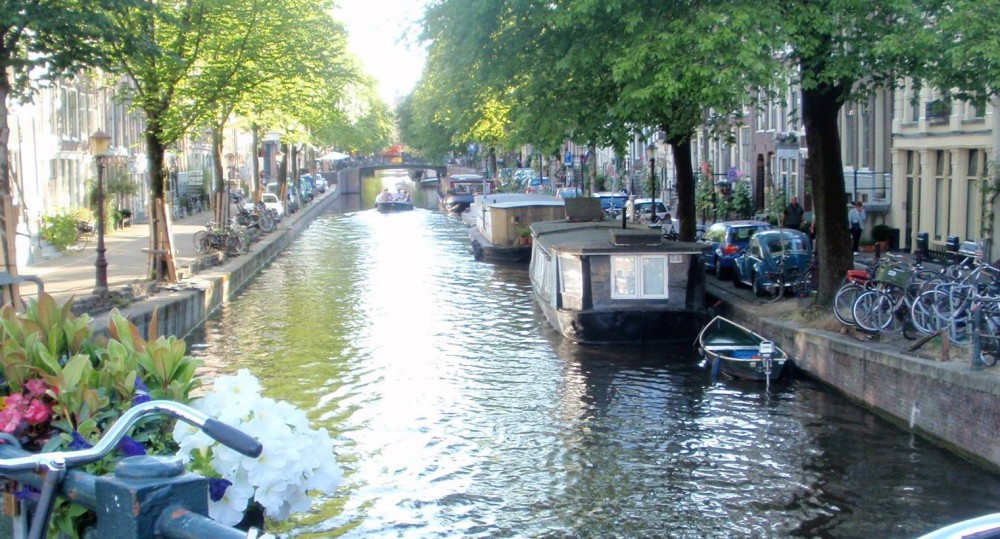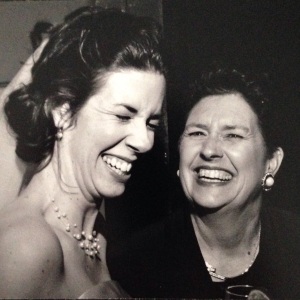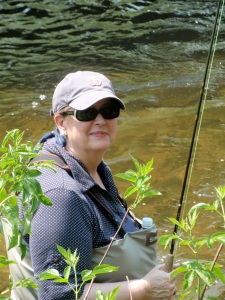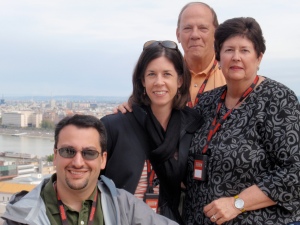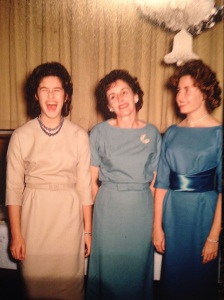It is an odd phenomenon of our modern world that our online lives continue after our earthly lives have ended. Our digital footprints cross more virtual space than our real feet could wish to cover.
I’ve been thinking of this only because I ran into an online ghost recently on Goodreads.com. (An aside: if you’re a reader and you don’t know or use Goodreads, check it out. It lets you track the books you’ve read and find recommendations. You can connect to friends of the real or virtual kind, follow authors, and share reviews and suggestions. I’m not into online socializing; for me, Goodreads is a tool to remember what books I’ve read and what I want to read. More than once, it has saved me from the paralysis I sometimes feel in a bookstore or library, and instead sent me confidently towards the right shelf.)
After adding something to my want-to-read list, I started browsing the long list of titles I’ve already read. I clicked on a Jane Austen book, of which I had only the vaguest memory, and I saw, below my four-star rating of the work, that someone I followed on Goodreads had also read the book. My mom. Who died in August, 2014.
I clicked into her profile. She had joined Goodreads in late 2012 and literally all of her activity on the site had happened on one single day, December 1. On that day she input and rated over 80 books. I suspect she never went back to the site; no additional books had been added, though I’m certain she kept reading up until her death. My friend request to her remains, forever, unanswered.
Few things in my adult life made me happier than when my mother – an exceptionally smart and well-educated woman who was a teacher for decades – finally started reading real books.
“Can-hider”??
For reasons I never understood as a child, and only vaguely understand now, my mother read trash for years. Years. Hers was a steady diet of Harlequin Romance. If you’re not familiar with Harlequin, their website describes their books as “uplifting escapes featuring real, relatable women and strong, deeply desirable men.” Most of the books feature these same “relatable” and “desirable” people on the cover in various states of undress. And by chapter seven (it was always chapter seven), all the clothes came off and the prose turned purple, or sometimes blue.
I might not have been too bothered by my mother’s enjoyment of these books, except she was always asking me to get some for her when I went to the library. She never cared if she had already read them; she knew they were essentially all the same. “Just pick out some with good covers”, she would tell me. My pre-teen or teen self would blush with shame as I put those worn paperbacks on the top of my pile of young-adult novels or research books.
Needless to say, I was thrilled when my mom joined a book club a few years before she retired. Suddenly she was asking what I was reading and sharing recommendations of books she enjoyed. Like most book clubs, I think hers was light on the actual book discussion and heavy on the chatting and wine tasting, but I loved that her involvement in it gave us something else to talk about together, and another way to connect.
When I found her Goodreads profile a few weeks ago, I was struck by the overlap between the books she had read and those on my list. I remembered which she had suggested to me. I can see where our tastes come together (Austin again, Ann Patchett) and where they diverge (Chris Cleve, Chris Bohjalian). She was generous with her five-star ratings, where I reserve those only for mind-blowing books I cannot live without.
Then I saw that my mom had marked several books as want-to-read. And my immediate thought was that she will never get to read them. My next thought was: I will.
There were eight in total, but two had ratings indicating that they may have been read, so that left me with just six. (It occurs to me now that it’s possible my mom actually read all of them and just never went back to Goodreads to change the labels. Which perhaps makes my little project even more pointless. But isn’t much of what we do for those we have lost pointless, really? So, ever onward.)
There’s nothing extraordinary about any of the books. The list is a mix of fiction and non-fiction, old and new. There’s nothing there I’ve been desperate to read, but neither will any be a struggle. The titles don’t give me some new insight into my mother. I don’t think there is any message from the great beyond waiting for me at the end of these six books. I doubt there’s a lesson to be learned or a revelation coming. I’ll mark the books as read and then cross them off both of our to-do lists. But while I’m reading, the conversation between me and my mom continues.
This coming Sunday is Mother’s Day in the United States, a day that can be complicated regardless of the status of your particular mother-child relationship. So I’m going to offer a suggestion, borrowed from the great Mr. Fred Rogers, that we all spend 10 seconds on Mother’s Day thinking “of the people who have helped you become who you are, those who cared about you and wanted what was best for you in life.” I’ll watch the time.
